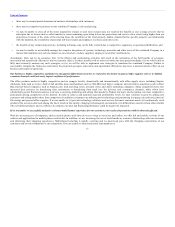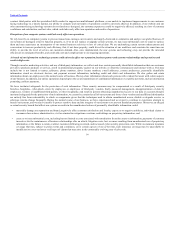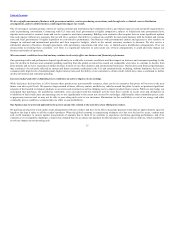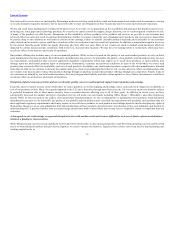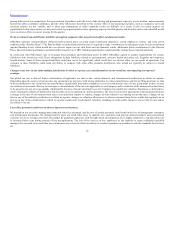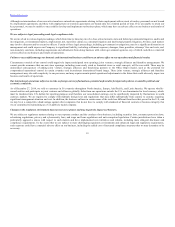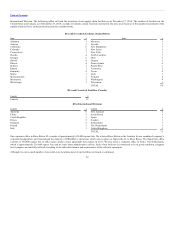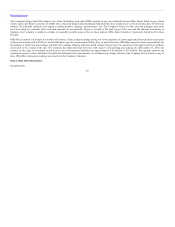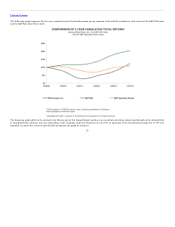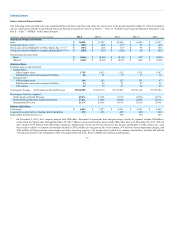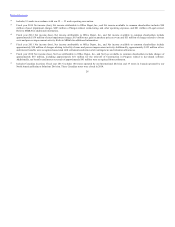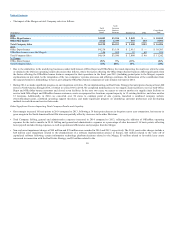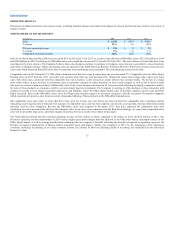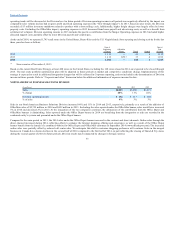OfficeMax 2014 Annual Report Download - page 25
Download and view the complete annual report
Please find page 25 of the 2014 OfficeMax annual report below. You can navigate through the pages in the report by either clicking on the pages listed below, or by using the keyword search tool below to find specific information within the annual report.
Table of Contents
The Company is involved in litigation arising in the normal course of business. While, from time to time, claims are asserted that make demands for a large
sum of money (including, from time to time, actions which are asserted to be maintainable as class action suits), the Company does not believe that
contingent liabilities related to these matters (including the matters discussed below), either individually or in the aggregate, will materially affect the
Company’s financial position, results of operations or cash flows.
On February 4, 2015, Staples and Office Depot entered into the Staples Merger Agreement under which the companies would combine in a stock and cash
transaction. On February 9, 2015, a putative class action lawsuit was filed by purported Office Depot shareholders in the Court of Chancery of the State of
Delaware (“Court”) challenging the transaction and alleging that the defendant companies and individual members of Office Depot’s Board of Directors
violated applicable laws by breaching their fiduciary duties and/or aiding and abetting such breaches. The plaintiffs in David Raul, v. Office Depot, Inc. et al.
seek, among other things, injunctive relief and rescission, as well as fees and costs. Subsequently, seven other lawsuits were filed in the Court of Chancery of
the State of Delaware making similar allegations, namely Beth Koeneke v. Office Depot, Inc. et al., Jamison Miller v. Office Depot, Inc. et al., Eric R. Gilbert
v. Office Depot, Inc. et al., The Feivel and Helene Gottlieb Defined Benefit Pension Plan v. Office Depot, et al., Charles Miller v. Office Depot, Inc. et al.,
David Max v. Office Depot, Inc. et al., and Steve Renous v. Staples Inc. et al. Two lawsuits were filed in Palm Beach County Circuit Court, namely Keny
Petit-Frere v. Office Depot, Inc., et al. and John Sweatman v. Office Depot, Inc., et al. Other lawsuits may be filed with similar allegations.
In addition, in the ordinary course of business, sales to and transactions with government customers may be subject to lawsuits, investigations, audits and
review by governmental authorities and regulatory agencies, with which the Company cooperates. Many of these lawsuits, investigations, audits and reviews
are resolved without material impact to the Company. While claims in these matters may at times assert large demands, the Company does not believe that
contingent liabilities related to these matters, either individually or in the aggregate, will materially affect its financial position, results of operations or cash
flows. In addition to the foregoing in 2009, State of California et al., ex rel. David Sherwin v. Office Depot, Inc. (the “Sherwin lawsuit”) was filed in Superior
Court for the State of California, Los Angeles County, and unsealed on October 16, 2012. The lawsuit asserted claims, including claims under the California
False Claims Act, based on allegations regarding certain pricing practices under now expired agreements that were in place between 2001 and January 1,
2011, pursuant to which governmental agencies purchased office supplies from us. The plaintiffs sought monetary damages and other relief, including
trebling of damages and statutory penalties. On June 25, 2014, the Company participated in a non-binding, voluntary mediation in which the Company
negotiated a potential settlement to resolve the matter. During the second quarter of 2014, the Company recorded an $80 million incremental increase to the
legal accrual which included the potential settlement, as well as attorneys’ fees and other related legal matters. On December 19, 2014, Office Depot and the
plaintiffs executed a Settlement Agreement to resolve the lawsuit. Pursuant to the terms of the Settlement Agreement, the Company agreed to pay the
plaintiffs $68 million to settle the matter (the “Settlement Amount”), as well as $9 million in legal fees, costs, and expenses. In exchange for, and in
consideration of, the Company’s agreement to pay the Settlement Amount, the plaintiffs agreed to dismiss their action against the Company with prejudice.
In February 2015, the court entered orders approving the settlement and dismissing the case with prejudice. The Settlement Amount was subsequently placed
in escrow pursuant to the Settlement Agreement. The funds are to be released from escrow and disbursed in accordance with the terms of the court’s orders.
In addition to the foregoing, Heitzenrater v. OfficeMax North America, Inc., et al. was filed in the United States District Court for the Western District of New
York in September 2012 as a putative class action alleging violations of the Fair Labor Standards Act and New York Labor Law. The complaint alleges that
OfficeMax misclassified its assistant store managers (“ASMs”) as exempt employees. The Company believes that adequate provisions have been made for
probable losses and such amounts are not material. However, in light of the early stage of the case and the inherent uncertainty of litigation, the Company is
unable to estimate a reasonably possible range of loss in the matter. OfficeMax intends to vigorously defend itself in this lawsuit. Further, Kyle Rivet v.
Office Depot, Inc., is pending in the United States District Court for the District of New Jersey.
23


